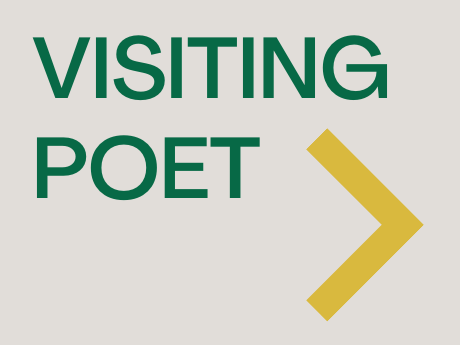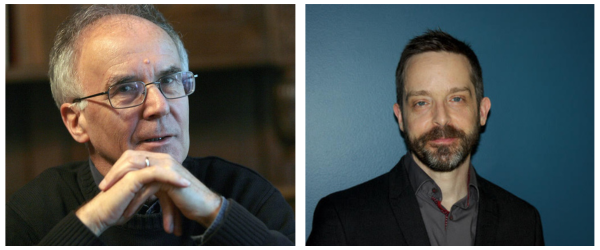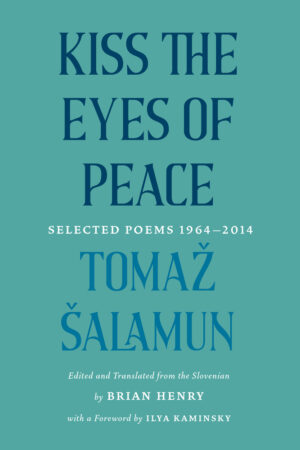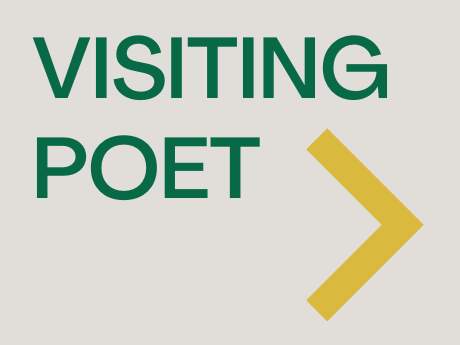Visiting Poet
Visiting Poet: Brian Henry on Tomaž Šalamun

Four Poems by Tomaž Šalamun
Dress / Influence Ends
what is your favorite color
my favorite color is yellow
would you wear a wig if your hair fell out overnight
if my hair fell out overnight I’d wear a wig
we were told you’d been in Portugal
could you briefly give us your impressions
Portugal is a small country
the people dress well
was it hot
it was hot in the sun
it was hot in the shade too
did you have an uncle with the air force
I had an uncle with the air force
did he influence you to decide on this profession
I wouldn’t say he influenced
before long he died and then he didn’t influence
Soldier / Canada
what is dearest to you in life
in life peace is dearest to me
would you follow a missionary
I think I would follow a missionary
but I’d still need to think it over
what has particularly upset you lately
I couldn’t say what particularly upset me
do you feel the effects of the second world war
I do not feel the effects
I remember a soldier rushing at a gate
I remember seeing a blue butterfly
we ask that you communicate something to our listeners
very well I’m saying hello to Uncle Eugene who’s now in Canada
Time / Yes
did you see a man drinking water
I saw a man drinking water
was he holding a pitcher in his hands
he was holding a pitcher in his hands
was he lying down and staring at the sun
he was lying down and staring at the sun
was he standing and staring at the ground
he was standing and staring at the ground
was he crouching
he was crouching
was he straight and tall
he was straight and tall
did you see a man drinking wine
I saw a man drinking wine
was he holding a pitcher in his hands
he was holding a pitcher in his hands
was he lying down and staring at the sun
he was lying down and staring at the sun
was he standing and staring at the ground
he was standing and staring at the ground
was he crouching
he was crouching
was he straight and tall
he was straight and tall
Driver
did you open his eyes? did you think he was hostile?
I didn’t open his eyes. I didn’t think he was hostile.
will you set him on fire? will you build him wings?
I won’t set him on fire. I won’t build him wings.
what is his profession?
chauffeur. he drives down dusty roads all day.
does he rush when it snows?
when it snows he puts on chains.
where did you meet him?
in the forest. he said he would be a pilot. he wondered
if it was much warmer in the south and if there was
a big difference in degrees.
Translated from the Slovenian by Brian Henry.
Reprinted from Kiss the Eyes of Peace (Milkweed Editions, 2024). Reprinted with the permission of the translator.
On Tomaž Šalamun
Whether or not he’s explicitly present in the text, Tomaž Šalamun’s presence electrifies every one of his poems. As one would expect of a poet who wrote more than 50 books over five decades, Šalamun works in multiple modes, from the relatively straightforward lyric narrative to what he called his own kind of Language poetry. While he is most visible in his transparently autobiographical poems, he is also clearly present in his more mystical, resistant, and disjunctive poems. And in his poems that lack a narrator or clearly identifiable speaker, he’s still lurking in the space of the poem.
This is one of the reasons that I find his “interview” poems especially intriguing. “Jonah” is the most famous of these, but I gravitate toward the poems where the identity of both speakers remains uncertain since they invite the reader to participate in the making of meaning, as well as in the process of questioning and answering. They captivated me when I first encountered some of them, in earlier translations, in The Four Questions of Melancholy (1997): their indeterminacy, their tone, the hazy landscape (physical, mental, linguistic) that they created. Why would a poet with such a magnetic presence seem to disappear from poems entirely dependent on the two voices (and presences) in them? Is he one of the speakers? If so, the one who asks the questions or the one who answers them? Is he neither, or somehow both? The framing of the poems—the situation—is open to the reader. The poem could be a casual conversation revolving around small talk, part of a radio interview, or an interrogation by the secret police.
The first three poems included here are from his second book The Purpose of a Cloak (1968), which, like Poker (1966), was published in samizdat. The Purpose of a Cloak is largely governed by a collage aesthetic, and there are two tables of contents, so each poem effectively has two titles. These poems precede “Jonah” and “Driver,” which appear in Šalamun’s third book, Pilgrimage for Maruška (1971). There seems to be a slight—yet monumental—tonal shift in the interview poems between The Purpose of a Cloak and Pilgrimage for Maruška. “Driver,” especially, adopts a more menacing—yet somehow also comforting—tone. The doubled questions and doubled answers in the first four lines, to me, make all the difference, as does the way the poem trails off at the end with an uncharacteristically long answer.

Tomaž Šalamun was born in 1941 in Zagreb, Croatia, and raised in Koper, Slovenia. He is the author of more than fifty books of poetry and his work has been translated into more than twenty-five languages. A curator and conceptual artist prior to becoming an acclaimed poet, his honors include the Prešeren Prize, the European Prize for Poetry, the Mladost Prize, the Jenko Prize, and a Pushcart Prize. He served as Cultural Attaché to the Slovenian Embassy in New York and, in addition to serving as a Fulbright Fellow at Columbia University, held various visiting professorships across the United States. He died in Ljubjiana, Slovenia, in 2014.
Brian Henry is the translator of Tomaž Šalamun’s Selected Poems and Woods and Chalices, as well as Aleš Debeljak’s Smugglers and six books by Aleš Šteger, most recently Burning Tongues: New and Selected Poems. Henry is also the author of Permanent State, ten other books of poetry, and the collection of essays, Things Are Completely Simple: Poetry and Translation. His work has received numerous honors, including two NEA fellowships, the Alice Fay di Castagnola Award, a Howard Foundation fellowship, and the Best Translated Book Award. He lives in Richmond, Virginia.


